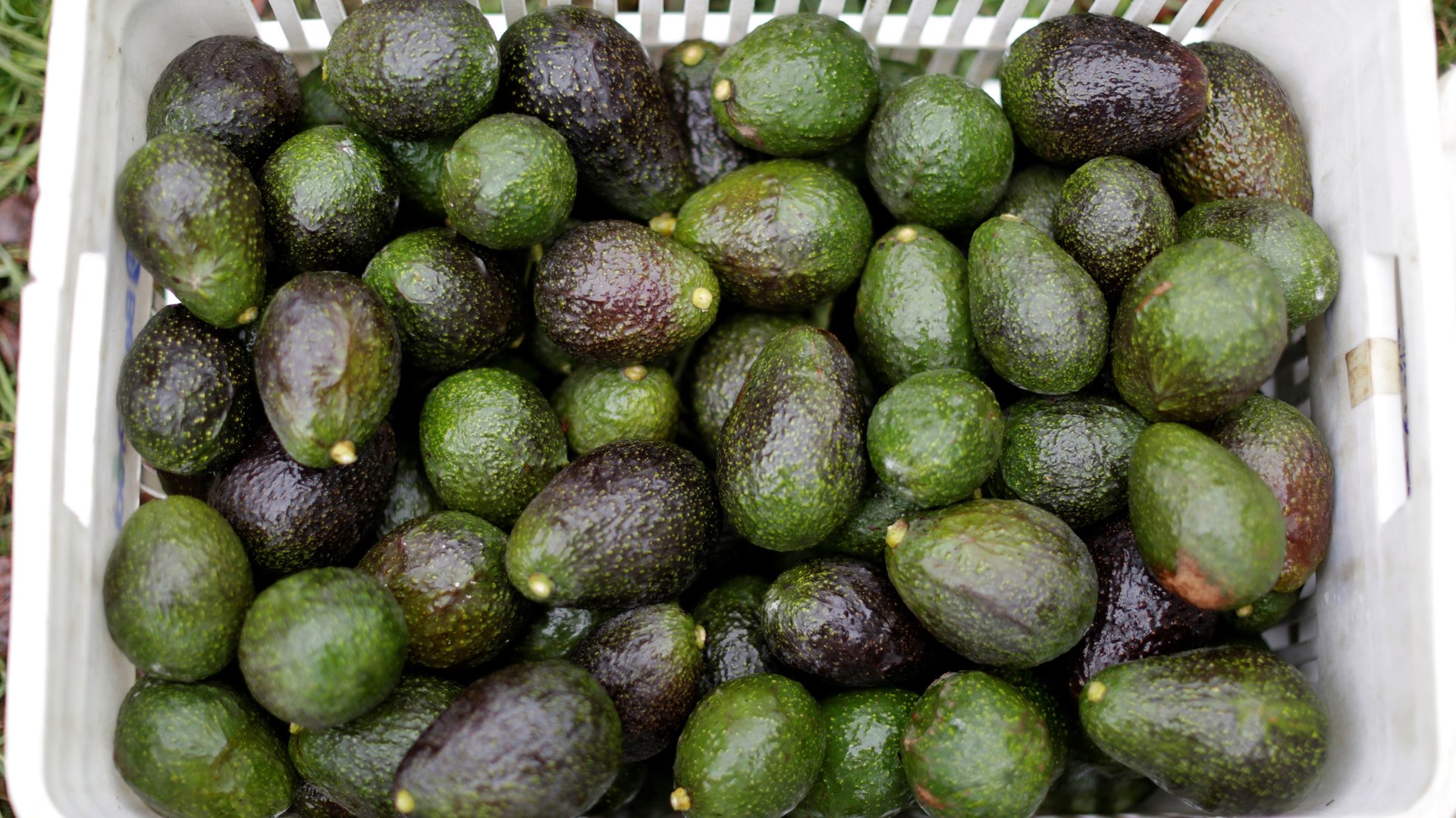An organic second skin could keep your avocados from going bad so quickly
The only thing that could make avocados better is if they could just wait on your shelf—not turning brown—until you were ready to eat them.


The only thing that could make avocados better is if they could just wait on your shelf—not turning brown—until you were ready to eat them.
Finally, that day has come. On Tuesday (June 19), Del Rey Avocado and Eco Farms announced they will start selling long-lasting avocados at Costco and Harps Food Stores in the US midwest, for only $5 per bag of five. These avocados look exactly the same as Hass avocados, but have one key difference: they’ve covered in a thin coating of Apeel, a product created by a tiny startup of the same name, based in Goleta, California. According to Apeel, with this coating the shelf life of an avocado increases by roughly two or three times; instead of going brown after three to four days on your countertop, Apeel avocados last for more than a week.
The company borrowed a leaf from nature to devise its solution. Apeel is a powder made from cutin, a substance plants evolved to make some 700 million years ago in order to survive on land. Simply being exposed to air (and anything floating in it) poses a threat to plants; cutin works similarly to our own skin, explains James Rogers, the CEO of Apeel Sciences and a trained materials engineer. “It’s so important that it’s been conserved among all [plant] species,” he says.
Cutin is waxy molecule made of long, carbon-based chains with other atoms like hydrogen and oxygen, similar to fats. It has one job: slow the fruits respiration by keeping water and carbon dioxide in, and oxygen out. Dehydration and oxygen exposure lead to spoilage.
When mixed with water, the powder can be sprayed or otherwise applied to fruits, and works like a second layer of a fruit’s preexisting skin. Apeel Sciences derives the powder from other kinds of food waste, like grape skins discarded from wineries or seed shells from soup makers. As such, it’s considered organic, and “generally recognized as safe” by the US Food and Drug Administration—since we’ve been eating cutin in fruits and vegetables for years, we’re fairly certain it comes with no health risks.
Apeel customizes its powders for the type of produce it will protect. So far, they’ve worked on powders for bananas, mangoes, cassava, citrus fruits, asparagus, strawberries, and green beans in addition to avocados.
This solution to a minor inconvenience for people wealthy enough to afford a luxury food item was the result of research into how to solve a dire problem in poorer parts of the world: How to keep produce lasting long enough to feed the maximum number of people possible. Apeel originally planned to its product for farmers in rural areas in Africa, who aren’t always able to get their produce to large markets in time before it spoiled. Rogers and his team initially won a $100,000 grant through the Bill and Melinda Gates Foundation back in 2012 for the project, and have been working with farmers in Kenya and Nigeria for the past three years. The Apeel product is now undergoing regulatory review in those countries; on approval, it will be widely available for both cassava and mangos.
At the moment, avocados are the only Apeel-coated product being sold in the US market, and is only available for direct-sale to producers. In addition to expanding avocado sales to parts of the country outside the midwest, the company hopes to start selling citrus and asparagus next. Rogers says these products should cost about as much as regular produce, because farmers and retailers make up for the cost of Apeel by being able to sell more of the fruits and vegetables before they spoil.